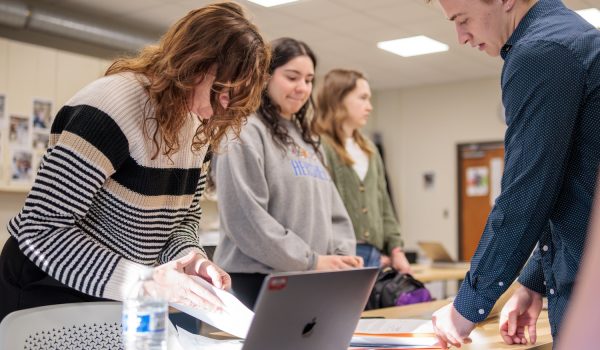Chapter 3: Kindness and Assessment
Learning Community 1: Fridays; March 7, April 11, and May 9: 11:50-12:45pm
Facilitator: Francesca Gandini
Location: CILA office (RML 300)
RSVP
In general, I am interested in talking about alternative grading practices and would also welcome workshopping assignments with folks. One challenge that is not discussed enough in the chapter is the one around messaging with students. When one uses “new” assessment methods, there will be some natural concerns from students on how their grade will be impacted, this can create another source of stress. What can we do to increase buy-in and clarity in our assessment methods?
Potential Further Readings:
From Chapter 3 end notes:
2. It’s Time to Cancel the Word Rigor (CHE)
19. UDL Guidelist from CAST
20. The unessay (blog post by Daniel Paul O’Donnell)
15. Laziness Does Not Exist [longer read]Related NPR story
Designing Self-care into our Daily Workload
Learning Community 2: Wednesdays; March 12, March 19, and March 26: 2-3pm
Facilitator: Katie Obidimalor
Location: CILA office (RML 300)
RSVP
As academics, we are often under pressure to put our work, our students, our colleagues, and our commitments ahead of ourselves. While we often extend kindness to others in varying ways, we can forget to extend that kindness to ourselves, which can lead to burn out and unhappiness. In this workshop, we will start by focusing on building self-care habits into our routines by using some of the ideas mentioned in Chapter 1: “Kindness toward the Self” and extending this with our own ideas and habits that we have created or hope to create. In week two, we will look at the fourth chapter, “kindness in the classroom” and think about ways that classroom assignment design can help to both facilitate learning and support a balanced workload, by brainstorming as a group ways to continue extending kindness to our students and ourselves through our teaching plans. Finally, in week three, we will examine changes we have made to our routines and reflect on what is working so far and what positive changes we hope to carry on into the future.
Chapter 3 – Kindness and Assessment
Learning Community 3: Thursdays; March 27, April 10, and April 17: 1:30-2:30pm
Facilitator: Sidonia Alenuma
Location: CILA office (RML 300)
RSVP
Since teaching through the lens of the pedagogy of kindness is not necessarily the traditional, generic approach, traditional methods of assessments may run short of performing the role of measuring how much students are learning. The alternative methods of assessment provided in The Pedagogy of Kindness, sound intriguing and seem to provide a rationale for teaching in non-traditional and conventional ways as proposed by the author. How can other methods of assessment, besides standardized tests and exams, be used in attaining information on student learning growth? What are the goals of assessment anyway? Can we think of other methods besides what C. Daniel proposes? Can we critique them as we compare them to our choices of assessment methods? How can we construct and design assignments/rubrics that are compatible with our methods of assessment? Let’s brainstorm and explore alternative methods of assessment – their pros and cons!
Chapter 1: A Radical Politics of Self-Care
Learning Community 4: Thursdays, April 24, May 1, and May 8: 3:45-5 PM
Facilitator: Nicole Yokum
Location: CILA office (RML 300)
RSVP
Cate Denial argues that self-care is about more than bath bombs and fine teas; rather, it is a “profoundly political act” that prioritizes self-preservation and healing in response to social injustice. For Denial, self-care features kindness and compassion towards the self and acknowledgment of our whole selves beyond our jobs as academics; it also necessitates holding ourselves accountable for our mistakes, especially as they emerge from out of our social positionalities and the “things we don’t know.” In this series of learning community sessions, we will explore the overlap between Denial’s work and “black lesbian feminist mother warrior poet” Audre Lorde, as well as philosopher Myisha Cherry’s concept of “solidarity care.” We will reflect on our own social identities and whole selves, constructing manifestos of a self-care of radical accountability in conversation with Denial’s list of concrete suggestions. Finally, we will engage with Denial’s important claim that sometimes self-care – even the robust political kind – is “not the answer.”
Frequently Asked Questions






You must be logged in to post a comment.